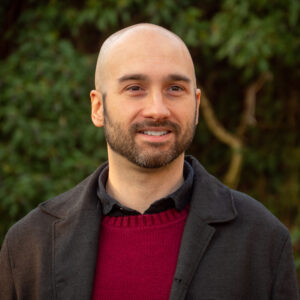ReForm at EAA in Belfast
ReForm had a representation this year on the 28th annual meeting European Association of Archaeologists (EAA 2023), held in Belfast (Northern Ireland, United Kingdom) from 30th August to 2nd September 2023, through the participation of Andreas Angourakis and Johannes Jungfleisch in this emblematic event for archaeology and other related disciplines worldwide. The event was quite a success, with more than 3,000 delegates and 287 sessions, also offering excursions to sites throughout Northeast Ireland, organised and guided by local archaeologists. It was indeed a busy few days, not to mention being the first-hand experience of the fascinating!

Andreas contributed to session #199 “Archaeological narratives, scales and the issue of social complexity”, organised by Stella Souvatzi (University of Thessaly), Maria Mina (University of the Aegean), and Dries Daems (Middle East Technical University and KU Leuven), presenting the ongoing work on the modelling of potential mechanisms for the emergence of georesourcescapes, taking the special case of rock salt mining in the Iron Age occupation in Dürrnberg (Salzburg, Austria), in collaboration with Nicole Boenke (Ruhr-University Bochum) and Thomas Stöllner (Ruhr-University Bochum; German Mining Museum Bochum).

This work articulates concepts that collide material with social complexity in small-scale societies, offered by the theoretical contributions around georesourcescapes, socio-ecological systems, and economic anthropology (domestic mode of production, reciprocity). The aim is to build a general simulation framework to test different hypotheses linking kinship, leadership and economic intensity, including their combined pressure over resources. Both abstract and slides can be found here.
Johannes presented his ongoing research on the material dimensions of precarity experienced by migrants on their journeys to Europe during session #535, titled “Precarious living conditions in the past.” The session was organized by Ramón Gijón (University of Granada), Carlos Tejerizo (University of Genoa), Marta Díaz-Zorita Bonilla (University of Tübingen), and Edgard Camarós (University of Cambridge) and aimed to explore the concept of precarity from a multidisciplinary and transchronological perspective.
Starting with Anna Tsing’s definition of precarity as a modality of life marked by vulnerability, insecurity, and indeterminacy, Johannes delved into the material culture of an informal migrant site along the Turkish west coast, likely in use during the autumn and winter months of 2015 and 2016. By drawing correlations between specific features and artifacts of this transit camp and the prevalent bordering practices of that time, he sought to demonstrate how the interplay of different actors and entities, such as smugglers, the rough sea, and the harsh weather conditions during winter gave rise to the precarious conditions experienced by migrants during this stage of their journey.


Andreas Angourakis
ist ReForm PostDoc.

